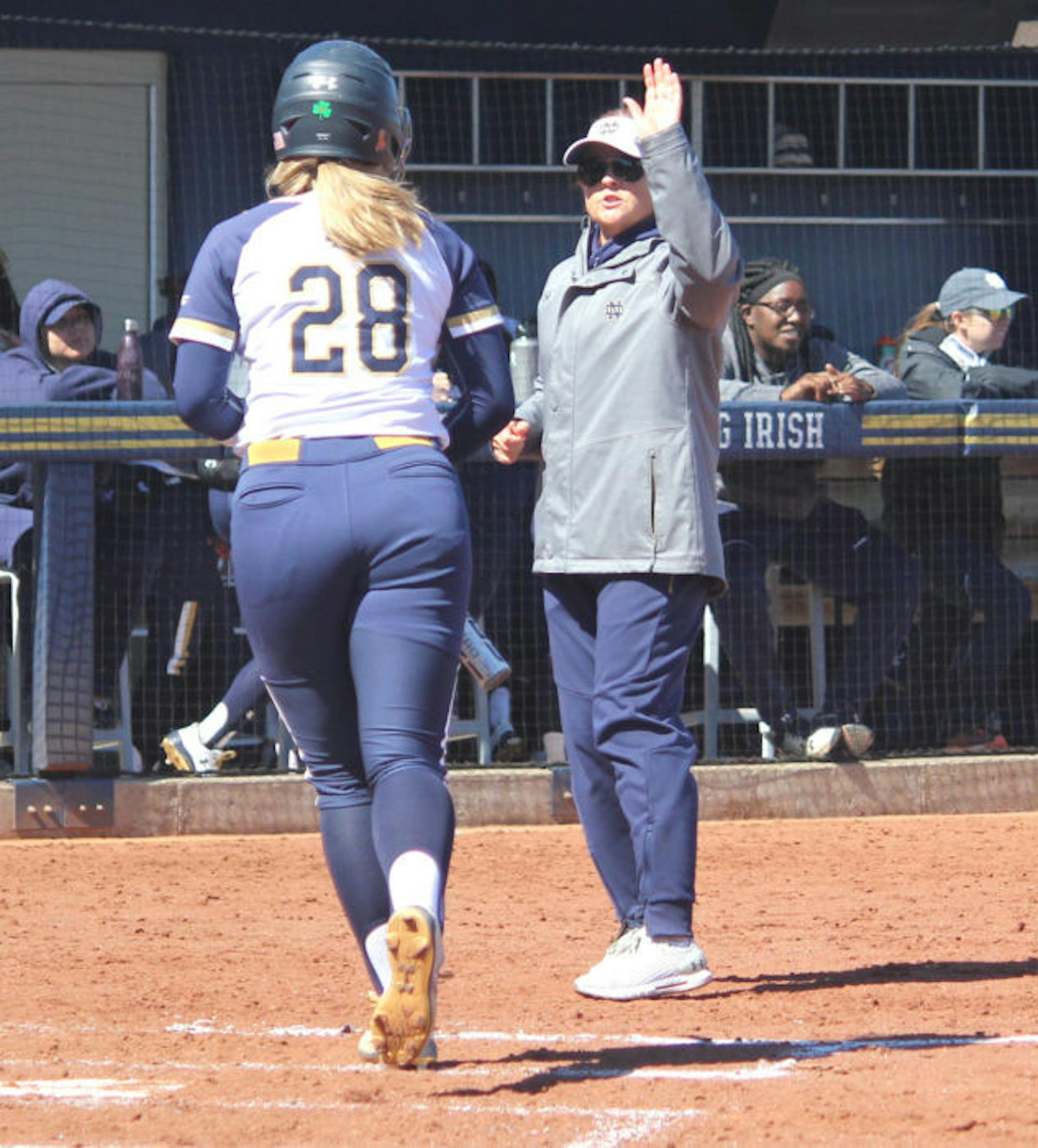Eight universities are thought to have participated in March’s college admissions scandal and now face investigation by the U.S. Department of Education. According to federal prosecutors, William “Rick” Singer, the man behind the scam, bribed college coaches and other officials to illegally secure admission for his clients’ children. Singer pled guilty to racketeering, among other charges, in mid-March.
It appears Notre Dame was never a target for Singer — according to a column from the Los Angeles Times, he refused to bribe athletics officials at the University because he believed its standards for recruitment and admissions to be too strict. Prospective student-athletes at Notre Dame must “meet academic thresholds and have authentic athletic records,” the column said.
At Notre Dame, the Athletics Compliance Office is the primary body responsible for monitoring athletics recruitment. The office works to ensure athletes, coaches and other athletics staff follow guidelines put forth by the NCAA, the organization that governs athletics for most colleges and universities. In addition to general regulations for college athletics, these rules outline each part of the recruitment process, including when students may be recruited and how recruiters can communicate with prospective athletes and their coaches.
Associate softball coach Kris Ganeff said the office supervises athlete and coach activity throughout recruitment. The office often enforces coach compliance by checking travel records and other documents, she said.
“They check our phone logs — they know we’re following the rules. … Any time you make a contact or an evaluation, that’s put into a system,” she said.
The Athletics Compliance Office also verifies prospective athletes’ records meet NCAA and University standards, she said.
“What kind of school are they in, where are they at, class rankings, where does their school rank — all those things matter,” she said.
Students who fail to meet the University’s academic standards are either turned down or, if already recruited, asked to drop their verbal commitments, Ganeff said.
“We’ve only had to [do] that a couple times, where, you know what, they weren’t just making the grade, and we had to make a switch,” she said. “But the kids knew that upfront.”
Senior pitcher Cait Brooks said after athletes commit, coaches will monitor their recruits’ academic performances closely.
Though it’s rare for a recruit to be barred from admission for academic reasons, it’s not unheard of, Brooks said.
“I’ve known girls who’ve gotten their scholarship dropped from a university and basically had to drop their verbal commitment because they were not going to be eligible to get into that university,” she said.
Brooks said she was not worried about admission after she committed and applied only to Notre Dame.
“There was no doubt in my mind — I mean, they have your transcript, they’re in communication with Compliance and Admissions,” she said.
Director of admissions, operations and managementBrian Lohr said the Office of Undergraduate Admissions alsoclears all prospective athletes for recruitment. The office receives forms from coaches detailing information about each recruit’s high school, their intended major, current GPA, class rank and test scores, he said.
“They will also identify the athlete’s ability and will give us a blurb on how this student-athlete would potentially impact their team,” he said.
Lohr said the primary role of his team is to evaluate the student holistically.
“As far as their athletic talent, we rely strictly on the coaches to make that determination,” Lohr said.
After reviewing this information, coaches are told whether or not the office recommends the student for admission.
“We might say, ‘The student-athlete is tentatively approved for recruitment, but we’ll need additional information in a certain area,’ ‘Not approved for recruitment,’ or ‘Totally approved for recruitment,’” Lohr said.
After being cleared for recruitment, the student will undergo the same standard admissions process for all undergraduate applicants, Lohr said. He said Admissions relies on the Athletics Compliance Office to confirm the students’ athletics records are authentic.
“When they put forward an athlete for us to evaluate, we’re making an assumption that they’ve looked at this person from a professional judgment standpoint and said they’re a student-athlete that they want to admit,” he said.
The Athletics Compliance Office declined a request for comment.
Notre Dame coaches, athletes comment on recruitment process in light of admissions scandal
Kris Ganeff, pictured, is an associate coach for Notre Dame softball.









